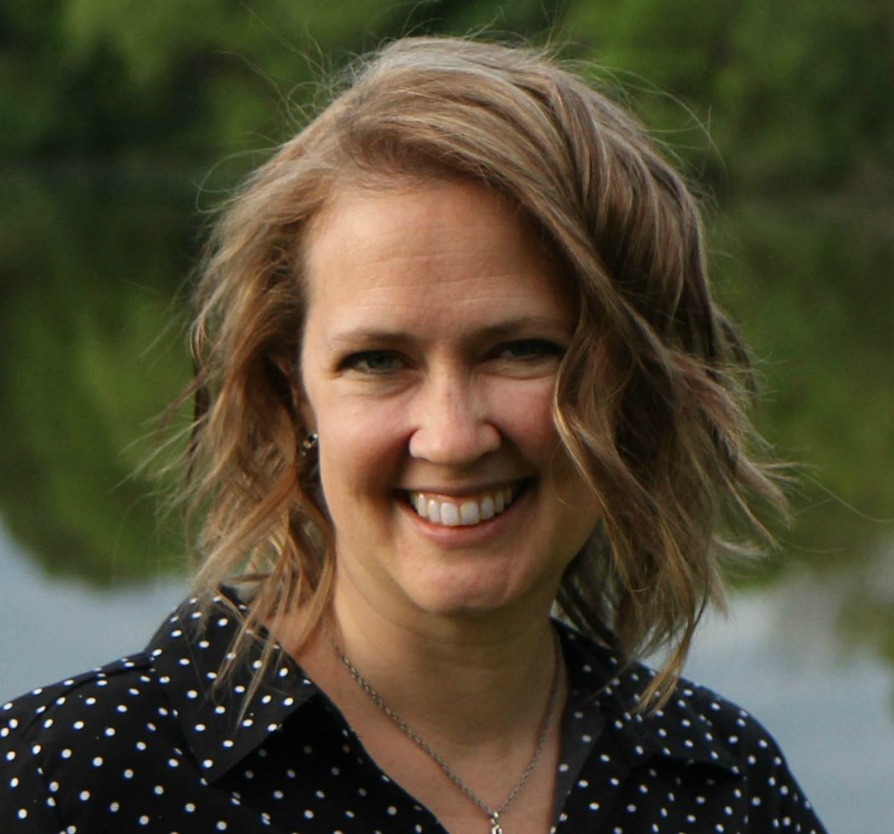Counselor, Life Coach, Therapist, Pastor: How Do I Choose?

A common phrase among believers says, “God is all we need.” Yet, one way God provides for our needs is through other people. We don’t need to live in isolation, or keep trying to ‘get it right’ or ‘do better next time,’ all alone.
Every one of us needs someone outside ourselves to see the things we cannot see. We aren’t designed to grow and heal on our own. We have the gift of the Holy Spirit to guide us. We also have the gift of receiving wisdom and insight from others, especially those with a unique set of gifts and qualifications geared towards helping people live freer. We can also lean on those who receive from the Holy Spirit.
By making space for external input, we experience the power of God at work through people.
Close friends and family may provide helpful feedback, but there are limitations inherent in these relationships. Not everyone close to you will provide honest information when you need to hear the hard things. Nor is what ‘friends and family’ have to share always well-informed. Sometimes, it can be damaging...particularly if addictions, abuse, or mental illness are involved.
Most of us could benefit from the help of trained individuals who provide broader perspectives and honed insights. But choosing one? It’s not so easy. Some help us pursue goals, experience healing, and receive comfort. Some help us grow personally and spiritually through the guidance of scripture and development of our faith. Many overlap in capabilities and focus.
How do you choose who to guide you?

Consider Your Needs and Goals
Begin by considering what your needs and goals might be. It’s okay if you aren’t sure. Talk it out or write down what you’re looking for and why.
Are you looking to heal from past hurts, move towards a specific life goal, stop living in fear and overwhelmed by anxiety, or start living more as the person God created you to be? What goals do you have for your future, your work, and relationships? What areas of life need a tune-up?
Keep in mind, you don’t need a crisis to benefit from the help of others. Marital relationships can be enhanced through counseling with two willing people. Family dynamics grow healthier with the trained insights of someone else. Getting help before crises hit builds a stronger foundation for trials ahead.
Consider Variations in Qualifications
Regardless of whom you choose for help, quality and compatibility varies. For example, a counselor may or may not be a licensed therapist. Therapists have different trainings and ability to deal with specific issues.
A person’s role doesn’t indicate what they believe, how they carry out their role, or their ability to shepherd hurting people. In addition, how your personality connects with the personality of another makes a difference in the care you receive. Life coaches, counselors, and therapists will have different training backgrounds, belief systems, and experiences.
With your needs and goals in mind, keep in mind that no one person will be a perfect fit, and that’s okay. Each person is unique, and their ability to help may be for a season.
A combination of outside professionals may be helpful. You get to decide. You get to ask questions. You can create a team that helps you address various areas of life.
Look for referral services to help you get started. I offer a list of Christian counselor options here. Then be ready to ask questions of the person(s) you choose to work with, so you can determine if they have experience with or interest in your needs.
Photo Courtesy: ©Getty Images/Westend61

Understand the Differences Between Coaches, Counselors, Therapists, and Pastors
The following are generalized depictions of each role and are not meant to depict all individuals with these titles. Consider this a starting point to help you understand differences in the types of help you can expect.
Life Coach: A life coach is someone who helps you move forward in life. They help you identify obstacles, including unhealthy beliefs that may keep you from making progress towards a goal. Through guided questions, they help you understand your values so you make choices that move you forward.
Counselor: The term counsel technically means advice, but not all counselors advise. Quality counselors are likely to ask directed questions that bring awareness to areas in need of healing and change, much like a coach does. They offer support by providing a safe space to share your story and process hard things. In addition, they will work with you to help you find healing for past hurts, identifying destructive belief patterns, and implementing new ways of thinking and living.
What separates a professional counselor from a life coach is the training that equips them to deal with past hurts interfering with today’s ability to live well.
Therapist: The term therapist typically refers to someone who is licensed and trained to provide a specific type of therapy. An occupational therapist helps people with skillsets for an occupation. A physical therapist helps people recover physically from an injury or illness.
When it comes to counseling for personal, emotional, and mental health issues, it’s common to see therapist terms like LPC (Licensed Professional Counselor), and LMFT (Licensed Marriage and Family Therapist). Professional counselors are often referred to as therapists.
If they are, they usually indicate their areas of specialty on their websites, such as Emotionally Focused Therapy (EFT), Gottman therapy, Eye Movement Desensitization and Reprocessing, (EMDR), etc.
A quality therapist considers the interplay between mental, physical, and emotional health. They may or may not include spiritual health or Christian faith.
Pastor: Like the term counselor, the label pastor means many things to different people. A common understanding of the term is to shepherd (guide, direct, care for) a church family and preach God’s Word. However, there are many different ways a pastor serves across numerous church structures. For example, a church may have several pastors. One does most of the teaching and preaching. Others fulfill other roles such as marriage ministry, singles ministry, youth ministry, etc.

Important Considerations Regarding Counselors
Since the term counselor is not stringently regulated, someone can call themselves a counselor based on their own definition. Their counsel may be based on limited to no training and personal insights. Not all people who call themselves counselors have a Master’s degree in counseling or are licensed therapists.
The term Christian Counselor also means different things to different people. They may or may not have share beliefs that are important to you.
Counseling methods vary widely. Research a counselor’s training and background. Find out if they have a Master’s or Doctorate degree in counseling or psychology. Are they a Biblical Counselor but not a licensed therapist?
There could be significant differences in the type of help you receive. Don’t assume that just because someone uses the term counselor they are qualified to counsel in the ways you need.
Important Considerations Regarding Pastoral Counseling
Pastors are often expected to provide biblical insight and guidance to help in times of crisis. It’s common to look for a pastor to provide comfort, care, and wisdom. But not all pastors counsel, and not all pastors who counsel are trained for counseling.
When it comes to Biblical counseling there is a range of perspectives and approaches even among leaders in this field. In general, pastoral counselors may be trained to provide support, encouragement, and guidance from God’s Word, but they not be well-versed in the nuanced needs for abuse, addiction, trauma, and mental illnesses; which can unintentionally cause secondary damage.
Photo Credit: ©GettyImages/PeopleImages

When One Size Doesn’t Fit All
Our faith journeys benefit from help from different sources. Our growth and healing often happens through a combination that ministers to our hearts, minds, bodies, and souls. Because we are interconnected and complex beings, we need a whole person perspective for whole living.
For example, my therapist is trained in EMDR (Eye Movement Desensitization and Reprocessing). This specific therapy has reduced the impact of trauma which helps me experience less fear/anxiety and more peace with God. Through EMDR my brain experienced physiological changes while my heart and mind experienced God in new ways, resulting in soul-deep changes.
If you begin a relationship with one counselor and decide you’d benefit from a specific therapy, like EMDR, but your counselor isn’t trained, consider using a specialized therapist in conjunction with your counselor. In addition, some Christian counselors provide healthy spiritual support, some do not. A non-Christian therapist may be beneficial for targeted help while spiritual support comes through friends, pastors, church community, or a different counselor.
A comprehensive outlook means we aren’t limited to one person for all our needs.
Evaluate Your Assumptions
What does it mean to have a pastor help you? Or a counselor? What do you expect?
Regardless of whom you choose to guide you, notice your own possible assumptions of what counseling, coaching, therapy, or pastoral help looks like. These can impede your work because they limit you to only what you can see and what you want, not what God might have for you in places you can’t see.
Photo Credit: ©GettyImages/Wavebreakmedia

Sorting through the Differences
The lines blur between various people helper roles, but there are a few key (highly generalized) indicators to help you decide where to start.
A life coach focuses on moving from where you are to where you want to go.
A professional counselor helps deal with past hurts interfering with today’s ability to live well.
A counseling pastor focuses on God’s words and God’s ways throughout scripture to minister to the spirit.
All the above may or may not offer scripturally-sound guidance, practically-helpful wisdom, and guidance for dealing with destructive beliefs and unhealed wounds.
If you struggle with depression, anxiety, trauma, abuse, a difficult relationship, fear, and other issues that continually limit your ability to live well and experience God’s peace, joy, and freedom, please consider finding a good Christian counselor.
If your struggle is primarily about a goal you want to achieve, consider a life coach.
Regardless of whom you choose, remember: quality professionals do not tell you to do things their way. In any of these roles, advice and guidance should not supersede honor for your personhood and care for a journey only you can take with God. Leaders lead best when they serve, uphold biblical truth, and express love as Jesus did.
Asking for help outside yourself takes courage and humility. It requires allowing your weaknesses to meet God’s strength through the gifts of other people. May God guide your every step. May you not give up before receiving all God has for you.
For further exploration of the differences and what to look for, these articles may be helpful.
What Kind of Counseling is Available for Christians?
What Christians Need to Know to Find a Good Counselor
Photo Credit: ©GettyImages/Prostock-Studio
Originally published September 25, 2025.






